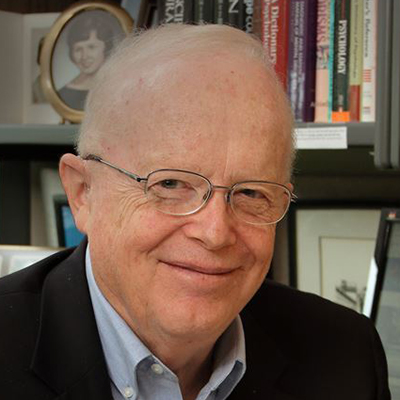-
About
Our Story
back- Our Mission
- Our Leadershio
- Accessibility
- Careers
- Diversity, Equity, Inclusion
- Learning Science
- Sustainability
Our Solutions
back
-
Community
Community
back- Newsroom
- Discussions
- Webinars on Demand
- Digital Community
- The Institute at Macmillan Learning
- English Community
- Psychology Community
- History Community
- Communication Community
- College Success Community
- Economics Community
- Institutional Solutions Community
- Nutrition Community
- Lab Solutions Community
- STEM Community
- Newsroom
- Macmillan Community
- :
- Psychology Community
- :
- Talk Psych Blog
Talk Psych Blog
Options
- Mark all as New
- Mark all as Read
- Float this item to the top
- Subscribe
- Bookmark
- Subscribe to RSS Feed
Talk Psych Blog
Showing articles with label Motivation.
Show all articles
Author
01-02-2017
12:27 PM
It’s the new year transition, the line between our last year’s self and our hoped-for healthier, happier, and more productive self. To become that new self, we know what to do. We know that a full night’s sleep boosts our alertness, energy, and mood. We know that exercise lessens depression and anxiety, sculpts our bodies, and strengthens our hearts and minds. We know that what we put into our bodies—junk food or balanced nutrition, addictive substances or clean air—affects our health and longevity. Alas, as T. S. Eliot foresaw, “Between the idea and the reality . . . Falls the Shadow.” So how, this year, can we move from knowing the needed behaviors to doing them? Rocky89/iStock/Getty Images Psychological science offers six strategies. First, do make that New Year’s resolution. Research by Gary Latham, Edwin Locke, and others confirms that challenging goals motivate achievement. Specific, measurable, realistic goals—such as “finish the business plan by the month’s end”—direct attention, promote effort, motivate persistence, and stimulate creativity. Second, announce the goal to friends or family. We’re more likely to follow through after making a public commitment. Third, develop an implementation plan—an action strategy that specifies when, where, and how you will march toward achieving your goal. Research shows that people who flesh out goals with detailed plans become more focused in their work, and more likely to complete it on time. Through the ups and downs of goal-striving, we best sustain our motivation when we focus on immediate subgoals. Better to have our nose to the grindstone than our eye on the ultimate prize. Better to attend to daily study than the course grade. Better to center on small steps—the day’s running target—than to fantasize the marathon. Fourth, monitor and record progress, perhaps aided by a tracker such as a Fitbit. It’s all the better when that progress is displayed publicly rather than kept secret. Fifth, create a supportive environment. When trying to eat healthy, keep junk food out of the cupboards. Use small plates and bowls. When focusing on a project, hole up in the library. When sleeping, stash the smartphone. Choose the right friends. Such “situational self-control strategies” prevent tempting impulses, Angela Duckworth and her colleagues have found. Sixth, transform the hard-to-do behavior into a must-do habit. Habits form when we repeat behaviors in a given context—sleeping in the same comfy position, walking the same route to work, eating the same breakfast oatmeal. As our behavior becomes linked with the context, our next experience of that context evokes our habitual response. Studies find that when our willpower is depleted, as when we’re mentally fatigued, we fall back on our habits—good or bad. To increase our self-control, to connect our resolutions with positive outcomes, the key is forming “beneficial habits.” “If you would make anything a habit, do it,” said the stoic philosopher Epictetus. But how long does it take to form a beneficial habit? A University College London research team led by Phillippa Lally asked 96 university students to choose some healthy behavior, such as eating fruit with lunch or running before dinner, and to perform it daily for 84 days. The students also logged whether the behavior felt automatic (something they did without thinking and would find it hard not to do). When did the behaviors turn into habits? On average, after about 66 days. Gwyneth Paltrow recalls that when she first started working with a personal trainer, “finding motivation was hard. She advised me to think of exercise as an automatic routine, no different from brushing your teeth, to avoid getting distracted. Now it is part of my life—I exercise Monday to Friday at 10 a.m. and always stick with it.” So, is there something you’d like to make a routine or essential part of your life? Make it a New Year’s resolution. Announce it. Plan the needed specific steps. Then do it every day for two months, or a bit longer for exercise. You likely will find yourself with a new habit, and perhaps a healthier, happier, and more productive life. (For David Myers' other essays on psychological science and everyday life visit www.TalkPsych.com)
... View more
Labels
-
Motivation
-
Stress and Health
3
1
4,257
Author
11-18-2016
09:17 AM
Success, as Angela Duckworth emphasizes in her research and writings, grows from talent and grit: Highly successful people are often conscientious, determined, and doggedly energetic. And then there is the super grit displayed by champion ultra-marathoner, Pete Kostelnick, who recently completed the fastest-ever San Francisco to New York City run across the U.S. He did the 3100 miles with daily runs averaging 73 miles. For 42 days, that was nearly three back-to-back marathons a day! My introductory psychology text co-author and friend, Nathan DeWall, ran a segment with Kostelnick. In this splendid New York Times essay, Nathan tells the story of Kostelnick’s talent and grit that enabled this record achievement. Nathan is himself an exemplar of super grit, having willfully transformed himself from out-of-shape to ultra marathoner—losing 100 pounds in the process. He was in my state last weekend, for the six-hour Michigan Bad Apple run (after which he stopped by my house, below). For Nathan, six hours is a mere training run for the 100 mile ultra marathon he’ll be doing in two weeks. And that unthinkable distance is a breeze compared with his recent week-long 500k (310 mile) run across Tennessee. For most of us mortals, with finite energy reserves, normal grit suffices. But in various life domains, some folks, it seems, are those whose motivation and daily discipline defines super grit.
... View more
Labels
-
Motivation
0
0
2,133
Author
07-19-2016
08:47 AM
Originally posted on September 23, 2014. In the September Observer (from the Association for Psychological Science), Nathan explains why “Brain Size Matters.” He summarizes, and suggests how to teach, Robin Dunbar’s conclusion that “Our brain size evolved to accommodate social groups that contain roughly 150 people.” In the same issue, David’s essay on “Inspiring Interest in Interests” recaps research on the stability and motivational power of career-related interests, and offers students links to inventories that can assess their own interests and well-matched vocations.
... View more
Labels
-
Motivation
-
Neuroscience
-
Research Methods and Statistics
0
0
1,602
Topics
-
Abnormal Psychology
6 -
Achievement
2 -
Affiliation
1 -
Behavior Genetics
1 -
Cognition
7 -
Consciousness
8 -
Current Events
28 -
Development Psychology
13 -
Developmental Psychology
9 -
Drugs
1 -
Emotion
12 -
Gender
1 -
Gender and Sexuality
1 -
Genetics
3 -
History and System of Psychology
3 -
Industrial and Organizational Psychology
2 -
Intelligence
4 -
Learning
3 -
Memory
2 -
Motivation
3 -
Motivation: Hunger
2 -
Nature-Nurture
4 -
Neuroscience
4 -
Personality
10 -
Psychological Disorders and Their Treatment
9 -
Research Methods and Statistics
21 -
Sensation and Perception
6 -
Social Psychology
83 -
Stress and Health
8 -
Teaching and Learning Best Practices
7 -
Thinking and Language
12 -
Virtual Learning
2
- « Previous
- Next »
Popular Posts








